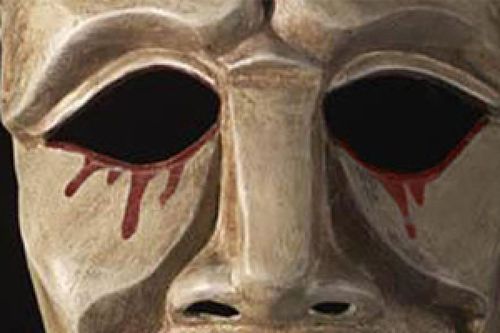Additional Resources and Notes
| “ | Even if everything is determined, we have no way of knowing what the total pattern is, so we must act on our own best judgment; free will is, therefore, a necessary illusion. Apparently wise men attain some insight into this pattern (or are given it by the gods), but all of us have the freedom to disregard such insight, follow our own desires, and suffer the consequences.[1] | ” |

Oedipus Rex is based on a legend deeply rooted in the cultural identity of Athens. The myth of Oedipus contained a historical and religious authority based on the cultural values of an oral tradition. It concerns the relationship between humans and their gods and, perhaps more importantly, primal hopes and fears that unearth a terror and despair normally buried in human consciousness.
Questions for Consideration
The following questions should help you begin thinking about the major themes, characters, and ideas in the primary text.
- Many consider Sophocles’ Oedipus Rex as the greatest of the Western tragedies. Even if you are not familiar with other Greek tragedy, consider the greatness of Oedipus the King from your own perspective. What themes common in the tragedy resonate for us today?
- All of the crucial action of the play takes place off stage: Oedipus' killing of his father, etc. Consider the dramatic effect of this decision: what is, therefore, highlighted if not the egregious acts committed by the protagonist?
- Even though during his investigation, Oedipus begins to suspect the truth of the situation, yet he pushes on to prove the terrible truth. What does this say about Oedipus specifically and the tragic hero in general? Does this shed any light on Oedipus’ eventual death?
- What is Oedipus' tragic flaw? Is there only one?
- Professor Literary Critic states that "to Sophocles, man has become an emancipated individual with a free will who cannot excuse his deeds by blaming Fate, the gods, or oracles. Reason is thus man's highest possession and greatest power." Discuss the contrast of fate verses free will in Oedipus the King.
- When Oedipus discovers his crimes, he blinds himself. Discuss the symbolic significance of this action. What does this act say about vision in general? (Perhaps start by thinking about that other blind character have we met this semester.)
- If Oedipus represents both the best and the worst of his culture, what values can we infer from our reading of the tragedy?
Secondary Texts
- Lucas, Gerald (February 22, 2014) [2003]. "Character v. Fate". GRLucas.net. Retrieved 2013-08-19. Notes on and an introduction to OR.
notes
- ↑ Agard, Walter Raymond (1949). The Humanities of Our Time. Madison: The U of Wisconsin P. p. 20.
